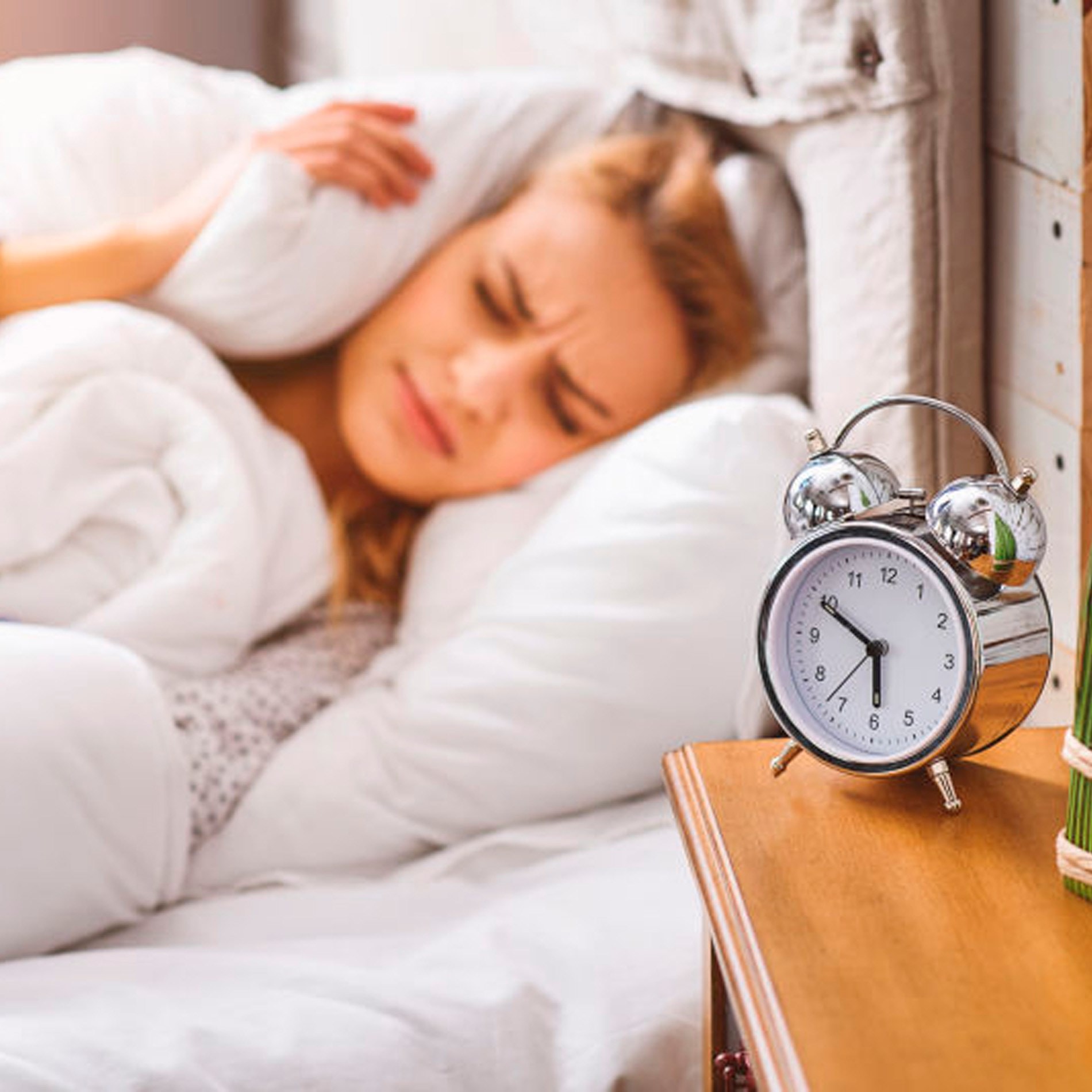Probiotics for Bloating
Have you ever wondered what causes bloating?
Bloating occurs in your stomach, and it usually happens when the gastrointestinal (GI) tract is filled with gas or air. When you feel bloated, you often feel as if you’ve eaten a large meal. It can also make your abdomen feel tight and swollen and for some, it can be very painful.
So, do probiotics help with bloating?
Read on to find out everything you need to know about choosing the best probiotics for bloating:
- Which probiotics are best for bloating?
- Gut health and bloating
- What causes bloating?
- Do probiotics help with bloating?
- What relieves bloating?
- When should you take a probiotic for bloating?
- How long does it take for probiotics to work for bloating?
- Summary
There is a wellness revolution going on, and the probiotics that coexist alongside us in our guts, and make up what is known as the microbiome, are playing a vital part.
Which probiotics are best for bloating?
Probiotics can be consumed through the food we eat or by taking a probiotic supplement. Most people are familiar with probiotic yoghurt drinks, but these often contain lots of sugar. Fermented foods, such as kimchi, sauerkraut, kombucha, kefir, plain yoghurt, and miso provide an excellent, low-sugar source of probiotics.
Having your probiotics in supplement form goes one step further. This offers a more targeted therapeutic intake that can be tailored to your individual gut needs, this is the best way to get the most out of your probiotics.
Recommended probiotic strains which have been well researched for bloating symptoms include:
- Lactobacillus acidophilus NCFM® 8
- Bifidobacterium lactis HN0199
- Bifidobacterium lactis Bi-07® 8
- Lactobacillus plantarum Lp299v ®10
- Bifidobacterium infantis 3562411
- Bacillus Coagulans12
- Saccharomyces cerevisiae CNCM I-385613.
- Lactobacillus acidophilus Rosell-5214
Healthcare professionals can explore the research behind Lactobacillus acidophilus NCFM®, Bifidobacterium lactis HN019, Bifidobacterium lactis Bi-07®, Lactobacillus plantarum LP299v®, Bifidobacterium infantis 35624, and Lactobacillus acidophilus Rosell-52 on the Probiotics Database.
Prebiotics are fibres that act as ‘food’ for probiotic bacteria. Learn more by reading What are prebiotics?. They are present in foods such as garlic, onions and leeks and can also be found in supplement form, often together with probiotics. A supplement combining probiotics and prebiotics is called a synbiotic. This mixture is particularly nourishing for the gut microbiome as the probiotic replenishes your gut with friendly bacteria and the prebiotic feeds both the probiotic bacteria themselves, along with your own beneficial bacteria that already naturally reside in your gut.
To encourage regular bowel movements and address bloating, you may like to add some prebiotic foods to your diet or consider a daily symbiotic supplement. Some sensitive individuals may find that prebiotics cause some initial bloating, but this usually settles down in a couple of days as the microbiome adjusts, after which prebiotics can often be helpful for those who suffer with bloating.
Gut health and bloating
The gut is made up of trillions of live organisms, collectively known as the microbiome. This ecosystem of bacteria plays a huge role in keeping us healthy and happy. If you’ve done some reading about the gut, you might also have heard about probiotics. Probiotics are live microorganisms that have co-evolved alongside humans. They have been shown in research to help with gut related issues such as bloating1, anxiety2, and immunity3.
To learn more on how probiotics may help with other aspects of health, including immune health, gut health, women's health, children's health and during pregnancy head over to our article Benefits of probiotics.
Bacteria are no longer the enemy. Research shows that by restoring balance in your microbiome with probiotics, you may be one step closer to getting to the root cause of your bloating and other related symptoms, such as gas and constipation.
What causes bloating?
Gas is produced as a normal part of the digestive process, and bloating is essentially a build-up of this gas. But where does it come from? Well, our microbiome (the name for the populations of bacteria living in our gut) is responsible for breaking down and digesting our food, and gas is a natural byproduct of this process. We actually excrete up to 1 and half pints of hydrogen, methane and carbon dioxide each day15!
But if these gases are produced in greater than normal amounts, we may suffer symptoms, such as a full feeling in the stomach, or a bloated tummy. These can be signs that the digestive process is not functioning in an optimal manner. There can be a number of different causes, some of which may respond to simple diet and lifestyle changes, whereas others may need medical investigation/intervention.
The gut microbiome is made up of many different strains (types) of bacteria, and is influenced daily by our individual environmental and lifestyle exposures. We play host to this army of bacteria, including beneficial probiotics, which are essential for our health and wellbeing.
Dysbiosis
A well-balanced microbiome is essential in maintaining a strong, healthy digestive and immune system. Dysbiosis occurs when there is a loss of beneficial bacteria, an overgrowth of potentially pathogenic bacteria, and an overall reduction in species diversity. An imbalance in certain species may lead to bloating as beneficial bacteria help to digest fibre-rich foods.
Research has shown that an imbalance of good and bad bacteria in the gut (dysbiosis) can result in a number of digestive health conditions such as constipation, diarrhoea, flatulence, and bloating4. Some bacterial groups are more prone to gas production than others, including Enterobacteriaceae and Clostridia5.
Dysbiosis can be caused by a number of factors. These include poor diet, high sugar levels (as sugar feed pathogens in the gut), antibiotics, stress and genetics. If you think your bloating is a symptom of dysbiosis, taking a probiotic supplement may be a positive step towards rebalancing your body's good bacteria. By influencing the environment within your gut, you can help restore it to a healthy balance. Learn more on this topic by reading: What is Dysbiosis and Gut Health - All You Need to Know.
Diet
Are you following a wholefood, plant-based diet? Diet is one of the most important factors in regulating the gut microbiome. The modern ‘convenience diet’ is high in refined sugars, and low in gut-supporting fibre and general variety. This can lead to an imbalance in bacteria – lower levels of good Prevotella and higher levels of potentially bad Firmicutes and Proteobacteria6. Research has shown that by increasing your consumption
of high-fibre fruits, vegetables and wholegrains, you can increase your levels of beneficial butyrate. Butyrate is a short-chain fatty acid which is thought to have highly protective functions in the body. It’s found in higher levels in those that follow a plant-based diet.
Food allergies
Bloating can be caused by intolerances to certain food types in your diet such as wheat, gluten, dairy and sugar. Ongoing exposures to these foods can drive bacterial imbalances and impair the gut lining leading to more symptoms and discomfort.
Low stomach acid
Gas and bloating that is concentrated higher up in the abdomen could be a sign of low stomach acid. Stomach acid (or, hydrochloric acid) is vital for proper digestion of food, as it triggers the activation of an enzyme, called pepsin, that breaks down protein foods in the stomach. Sufficient levels of stomach acid are also needed to trigger the release of bile and pancreatic enzymes in to the upper small intestine. When stomach acid levels are reduced we can struggle to digest foods, which can cause upper abdominal bloating.
Levels of stomach acid decrease naturally with age. Additionally certain medications reduce its production, as does chronic stress and improper chewing. Most health food shops sell supplements of hydrochloric acid (Hcl), which can be extremely helpful for many people that experience bloating and discomfort after eating. Start with a low dose, and you can build up over time, if required.
Stress
You might not know that stress and gut health are actually closely connected. This is due to the relationship between your gut and brain, also known as the gut-brain axis. When we are stressed, the body perceives this as a threat. As the fight-or-flight response is activated, our digestive system is effectively shut down. Blood flow is reduced to the intestines, and energy is diverted away from the gut, to our large skeletal muscles. If possible, we should avoid eating heavy meals when we are feeling stressed, as we do not digest them well, leading to bloating.In this state, your digestion becomes compromised as food is not broken down as effectively. This can lead to symptoms such as bloating, abdominal pain, gas, and constipation.
SIBO
Small Intestinal Bacterial Overgrowth (SIBO) is a condition in which an abnormally large number of bacteria are found in the small intestine. This migration of bacteria interferes with normal digestion, as they feed on the undigested food. SIBO sufferers often experience bloating, and this condition is also implicated in conditions such as Irritable bowel Syndrome (IBS). Up to 78% of IBS is thought to be SIBO-related, due to the high prevalence of certain bacteria in the small intestine7. Healthcare professionals can learn more on this topic by reading Small Intestinal Bacterial Overgrowth on the Probiotic Professionals site.
Constipation
Gut motility is so important for reducing symptoms of bloating. If you aren’t eliminating waste, then it can lead to a build-up of bacteria in the small intestine. This in turn can lead to SIBO. Stimulating digestion and the movement of food along the digestive system is important for reducing symptoms of bloating related to sluggish bowels. If constipation is a problem for you, then you could consider taking a natural supplement containing a probiotic strain called Bifidobacterium lactis BB-12®. This strain has been shown to be beneficial in promoting regular bowel movements for those with constipation whilst also supporting overall gut health.
Healthcare professionals can learn more by reading Probiotics for Constipation on the Probiotic Professionals site.
Hormonal imbalances
Imbalances in the female sex hormones oestrogen and progesterone, as well as high levels of cortisol (the stress hormone), may lead to abdominal bloating in some women. An increase in symptoms of bloating and gas around the time of menstruation and in early menopause, indicates that hormone changes certainly play a part in our gut health. However, more research is needed to fully understand the link16.
What is understood however, is that our microbiome is extremely sensitive to hormonal changes. The composition of both our gut microbiome and vaginal microbiome alter, dependent on both sex hormones and even stress hormones. If lower abdominal bloating occurs alongside irregular vaginal bleeding, then it is important to seek medical advice. Bleeding between periods (or bleeding post menopausally) with lower abdominal bloating, can be a symptom of common conditions such as: endometriosis, fibroids, or ovarian cysts, and should be investigated by a GP.
Read our article on Natural Menopause Support to learn more about hormonal imbalances.
Do probiotics help with bloating?
Probiotics are often referred to as your body's 'good bacteria’, and they have a commensal relationship with their host – us! The most common probiotic genera and the ones with the most research are Lactobacillus and Bifidobacteria. Within these genera there are many species and strains with different modes of action. It’s important to remember that different probiotic strains have different effects, and so must be chosen carefully for the desired benefit. Find out more about why probiotic strains matter.
Research indicates that probiotics can help those with symptoms such as gas and bloating8. As gut testing becomes more prevalent, you are now able to personalise your probiotics even more, too. Finding out which species you are lacking in and which are in abundance can help you to decide which probiotic is best for you. Companies such as Viome, Atlas Biomed, and Healthpath all offer gut testing, and for long-standing issues it may be a good place to start.
What relieves bloating?
To relieve bloating in the stomach, it also helps to address diet and lifestyle factors that could be contributing to the symptoms. We must also think about ways in which we can support our gut health, including probiotics. Here are some top tips for you to consider:
- Don’t overeat – reduce snacking to promote emptying of the bowel and to reduce fermentation of food that could potentially lead to SIBO.
- Chew your food thoroughly - improper chewing or eating too fast and swallowing lots of air (known medically as ‘aerophagia’) can promote bloating. Digestion starts in the mouth, and chewing activates digestive enzymes that kick start optimal digestion of food.
- Test for allergies/intolerances – investigate and rule out any potential allergies/food intolerances that could be exacerbating the problem. Keep a food diary or eliminate common triggers such as gluten, dairy, sugar, eggs and see if symptoms improve.
- Try a low-FODMAP diet – FODMAP stands for Fermentable Oligo-, Di-, Monosaccharides And Polyols. These specific carbohydrates are found in a variety of foods, and can be a problem for some people with dysbiosis. This is because they feed gut bacteria and encourage them to proliferate. A diet high in starches and complex sugars may aggravate SIBO, due to fructose malabsorption. As a result, sufferers might experience excessive gas, bloating, and abdominal pain. A diet with low levels of fermentable foods can decrease the chance of bacterial overgrowth, by creating a less favourable environment for bacteria.
- Reduce your sugar intake – this includes refined white sugars and carbohydrates, as these may potentially feed pathogenic bacteria in the gut and cause dysbiosis.
- Reduce stress – easier said than done, we know, but try to address your lifestyle and see what might be stressing you out. It is known that stress negatively impacts the microbiome and slows digestion. The gut is directly linked to the brain via the gut-brain-axis, so your emotional landscape will directly impact the health of your gut.
- Try a well-researched probiotic – look at specific strains of probiotics for bloating and digestive enzyme output, to help you break down your food.
- Increase soluble fibre intake – this will help to feed good bacteria and relieve constipation, by supporting regular bowel movements.
- Try supplements and natural remedies that help to increase gut motility - examples include ginger tea, magnesium, or 5HTP supplements between meals or before bed. Cleansing the bowel will also prevent build-up of bacteria within the small intestine.

When should you take a probiotic for bloating?
Probiotics work best when accompanied by healthy diet and lifestyle choices, but generally, the best time of day to take live cultures is in the morning with your breakfast.
However, there is one exception – if you are considering taking a probiotic for constipation that contains Bifidobacterium lactis BB-12® alongside prebiotics, you may wish to take this in the evening, rather than with your breakfast. The reason why some people prefer to do this is because those supplements that contain prebiotic fructooligosaccharides (FOS) fibres may cause some initial gas and bloating for a few sensitive individuals. These side effects should subside within 48-72 hours in most people, but this may take longer in people who have more severe dysbiosis, or if they have never taken a prebiotic before.
How long does it take for probiotics to work for bloating?
This will vary from person to person as the length of time it takes for probiotics to work will depend on an individual’s state of health, coupled with the composition of their gut and the strains being used. Head over to our article How do probiotics work? to learn more.
Summary
- Bloating can have many different causes, including: stress, diet, constipation and food intolerances.
- These contributing factors all play havoc with our microbiome – the population of microbes living in our digestive tracts.
- Supporting the microbiome through good dietary choices can help alleviate bloating.
- Taking certain strains of probiotic bacteria that are researched to help with bloating will also help.
You may also be interested in reading the following:
Why consider probiotic supplements over yoghurts?
Stress and bloating: Can one cause the other?
Health professionals can head over to Probiotic Professionals to find out more about using probiotics to support gut health.
References
- Hungin, A. P. S., et al. (2018). Systematic review: probiotics in the management of lower gastrointestinal symptoms - an updated evidence-based international consensus. Aliment Pharmacol Ther, 47(8), pp. 1054–1070. doi: 10.1111/apt.14539
- Gilliard, L, et al. (2017). Anxiety, Depression, and the Microbiome: A Role for Gut Peptides. Neurotherapeutics, 15: pp. 36-59.
- Montalban-Arques, A, et al. (2015). Selective Manipulation of the Gut Microbiota Improves Immune Status in Vertebrates, Frontiers in Immunology, 6(5): pp. 12.
- Menees, S., & Chey, W. (2018). The gut microbiome and irritable bowel syndrome. F1000Research, 7, F1000 Faculty Rev: pp.1029. https://doi.org/10.12688/f1000research.14592.1
- Chang, L, et al. (2011). Review article: the treatment of functional abdominal bloating and distension. Aliment Pharmacol Ther, 33: pp. 1071–1086.
- DeGruttola, J. K., et al. (2016). Current Understanding of Dysbiosis in Disease in Human and Animal Models. Inflammatory Bowel Diseases, 22(5): pp. 1137–1150.
- Ghoshal et al. (2017). Small Intestinal Bacterial Overgrowth and Irritable Bowel Syndrome: A Bridge between Functional Organic Dichotomy. Gut and Liver, 11(2): pp. 196-208.
- Ringel, K. T., et al. (2011). Probiotic bacteria Lactobacillus acidophilus NCFM and Bifidobacterium lactis Bi-07 versus placebo for the symptoms of bloating in patients with functional bowel disorders: a double-blind study. J Clin Gastroenterol, 45(6): pp. 518-25.
- Ibarra, A., et al. (2018). Effects of 28-day Bifidobacterium animalis subsp. lactis HN019 supplementation on colonic transit time and gastrointestinal symptoms in adults with functional constipation: A double-blind, randomized, placebo-controlled, and dose-ranging trial. Gut Microbes, 9(3): pp. 236-251.
- Niedzielin, K. et al. (2001). A controlled, double-blind, randomized study on the efficacy of Lactobacillus plantarum 299V in patients with irritable bowel syndrome. Eur J Gastroenterol Hepatol, 13(10): pp. 1143-7.
- Whorwell, P. J., et al. (2006). Efficacy of an encapsulated probiotic Bifidobacterium infantis 35624 in women with irritable bowel syndrome. Am J Gastroenterol, 101(7), pp.1581-90.
- Larysa, H. (2009). Original Research: Bacillus coagulans Significantly Improved Abdominal Pain and Bloating in Patients with IBS. Postgraduate Medicine, 121: pp.119-124
- Spiller, R., et al. (2016). Randomized double blind placebo-controlled trial of Saccharomyces cerevisiae CNCM I-3856 in irritable bowel syndrome: improvement in abdominal pain and bloating in those with predominant constipation. UEG Journal, 4(3): pp. 353–362.
- Benes Z. et al., (2006), ‘Lacidofil (Lb. acidophilus Rosell-52 and Lb. rhamnosus Rosell-11) alleviates the symptoms of IBS’. Nutrafoods, 5:20-27.
- Lacy, B, E; et al. (2011) ’Pathophysiology, Evaluation, and Treatment of Bloating, Hope, Hype, or Hot Air?’ Gastroenterology & Hepatology, 7(11): pp. 729-73
- Heitkemper, M, M et al, (2009) ’Do Fluctuations in Ovarian Hormones Affect Gastrointestinal Symptoms in Women With Irritable Bowel Syndrome?’ Gender Medicine, 6:(2) pp. 152-167
- Tomova, A, et al. (2019) ‘The Effects of Vegetarian and Vegan Diets on Gut Microbiota,’ Frontiers in Nutrition, 6: p. 47.
- Nanayakkara, W, S; (2016) ’Efficacy of the low FODMAP diet for treating irritable bowel syndrome: the evidence to date,’ Clin Exp Gastroenterology, 9: pp. 131-142.


